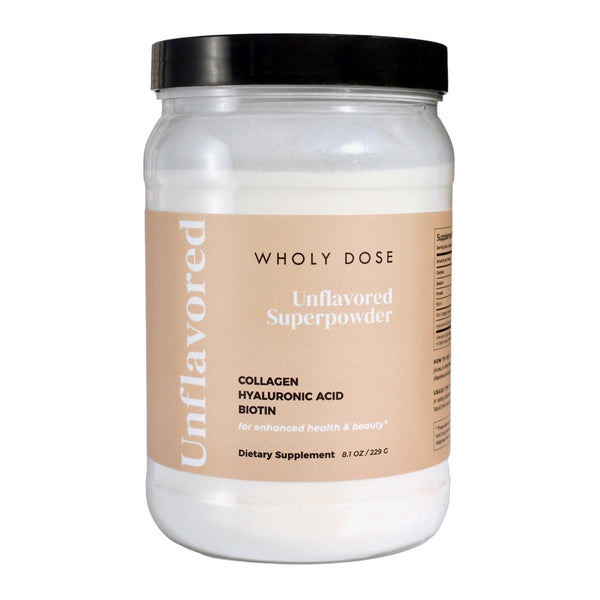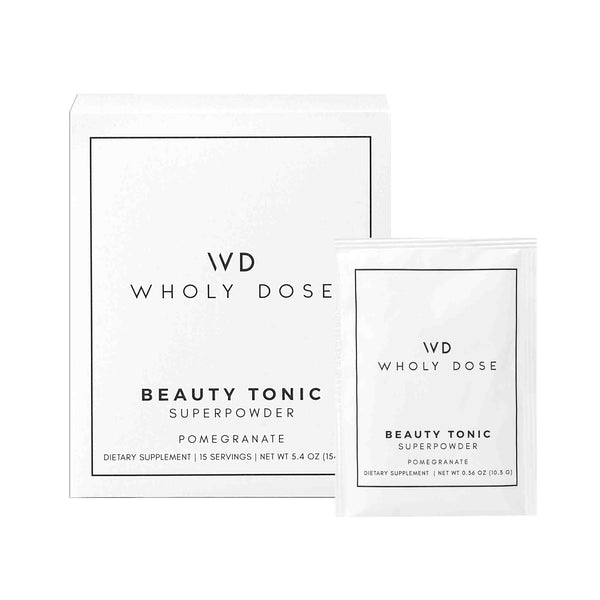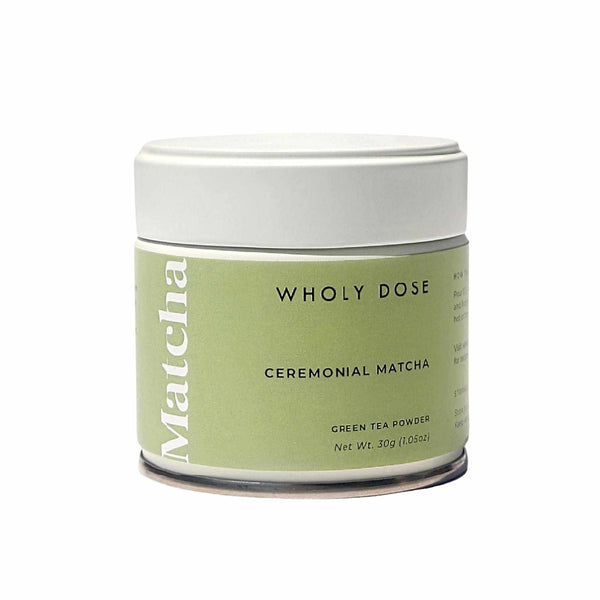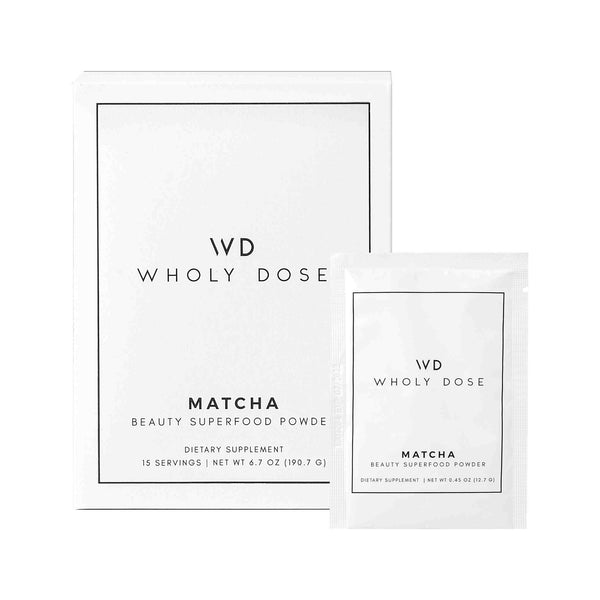
Ingredient Spotlight: Collagen
The Science Behind Collagen
Collagen is essential to the functioning of our bodies
and gives structure to our connective tissue, including
our skin, hair, nails, joints, muscles, and bones.
What is Collagen?
Collagen is a major structural protein that our bodies naturally produce. It is the most abundant source of protein in our bodies.
Think of collagen as the glue that holds your body together. Our bodies depend on collagen to keep our skin hydrated and plump, hair healthy, joints robust, muscles strong, and digestive system working properly.
How Collagen Affects Your Body with Age
Our bodies produce less collagen starting in our 20’s, at a decreasing rate of 1.5% per year. By our mid-late 40’s, our bodies loose up to 30% of our total collagen levels.
With this decline, our cells lose their structure and become weaker, thinner, and looser, leading to signs of aging, such as dry rough skin, wrinkles, brittle hair, hurting joints, and digestive issues.
Younger Skin
Older Skin
What Collagen Does, the Benefits
- Skin
- Hair
- Skin
- Immunity
- Joints
- Muscles
- Metabolism
- Digestion
- Appetite
- Increases skin hydration and plumpness
- Diminishes appearance of wrinkles
- Improves skin texture and tone
- Increases brightness of complexion
- Diminishes look of dark eye circles
- Helps with healing of scars and wounds
- Reduces appearance of cellulite and stretch marks
Collagen helps repair and replace damaged skin tissue by creating new cells. Studies show that when taken consistently, collagen can have positive benefits on the skin.
- Strengthens hair follicles
- Stimulates thicker hair growth
- Aids with hair brittleness
- Aids with hair loss, hair thinning and balding
- Grows eyelashes and eyebrows
Collagen makes up roughly 70% of the dermis layer of our skin, which is the same layer where the root of each hair follicle is located. So, when our bodies have abundant levels of collagen, we can maintain a healthy dermis and may prevent hair thinning and hair loss, while strengthening hair follicles.
- Strengthens nail growth
- Reduces brittleness of nails
- Decreases frequency of nails breaking
Arginine, one of the most crucial amino acids for nail growth, is found in collagen. Studies have found that collagen helps increase nail growth, reduce the brittleness of nails, and decrease the frequency of nails breaking.
- Reduces oxidative stress in the body
- Fights infections
- Reduces harmful toxins in the body
Oxidative stress is an imbalance between free radicals and the body’s ability to counteract harmful toxins through neutralization of antioxidants. Collagen contains powerful antioxidants that fight off oxidative stress, infections, and toxins in the body reducing your body's chances of sickness, disease and other ailments.
- Reduces joint pain
- Reduces risk of joint deterioration
- Strengthens bones
- Regenerates bone tissue
- Improves quality of bones
When it comes to our joints and bones, collagen is a vital protein that keeps them strong and healthy. Studies have found that collagen reduces joint pain and the risk of joint deterioration. Think of ingesting collagen like lubricating a creaky door hinge. Collagen helps lubricate our joints and bones to help them work properly and smoothly. It helps hold our bones together to make our joints move more easily.
- Aids with muscle recovery
- Restores muscle tissue
- Can increase muscle strength
- Increases lean muscle mass
Roughly one-third of protein found in collagen is glycine - this amino acid helps form creatine, which promotes healthy muscle growth. Additionally, studies show that consuming collagen helps increase lean muscle mass and can increase muscle strength, especially when working out.
- Boosts metabolism
- Increases energy levels
Collagen contains the amino acid, glycine, which is known to form muscle tissue by converting glucose into energy to feed muscle cells - this can help boost metabolism and energy levels. Collagen can also help increase lean muscle mass which, in turn, can give your metabolism a boost because muscle burns more calories than fat.
- Improves digestion
- Improves gut health
- Reduces inflammation
- Balances bowel movements
Consuming collagen helps heal the lining of our gastrointestinal tract (GI tract). As we age, we are more prone to a leaky gut (intestinal permeability), which is a condition where bacteria toxins and acids “leak” through our digestive tract. This may lead to bloating, low energy, fatigue, brain fog, weight gain, headaches, joint pain, food sensitivities, low metabolism, digestive problems, and skin issues such as acne, eczema, or rosacea. Glutamine has also been proven to prevent inflammation and help heal a leaky gut.
- Balances appetite
- Helps curb bad cravings
- Helps maintain a healthy weight
Collagen is low in fat and high in protein, keeping you full and satisfied. This, in turn, helps to reduce cravings. Studies have also found that taking collagen increases the satiety hormone, which helps control hunger and curb cravings that contain ingredients such as salt, sugar, oil, or fatty foods. People have also reported that consuming collagen keeps them more full and satisfied than other protein supplements such as whey or soy.
Science Behind
the Studies
Hydrating
Your Skin
Clinical Studies found that Changes in skin hydration in individuals receiving Low-molecular-weight Collagen peptide (LMWCP) preparation or placebo.
Evening Your
Skin Texture
Changes in skin-wrinkling parameters in individuals receiving Low-molecular-weight Collagen peptide (LMWCP) preparation or placebo. Changes in skin-wrinkling parameter R3 (average roughness)















